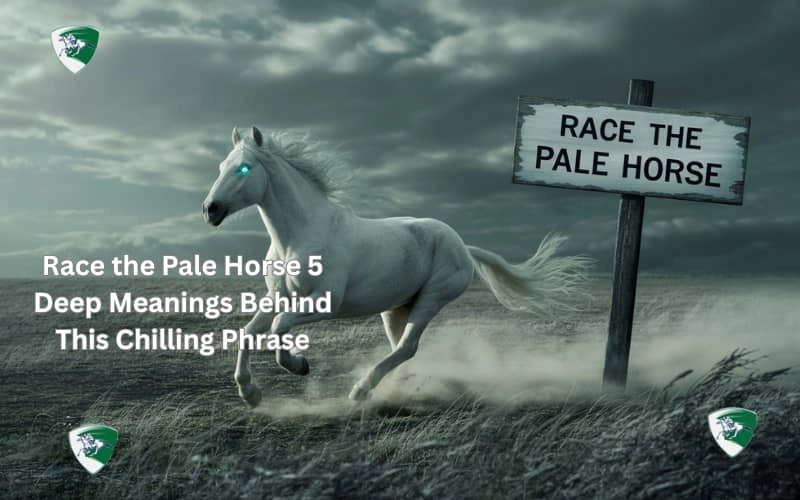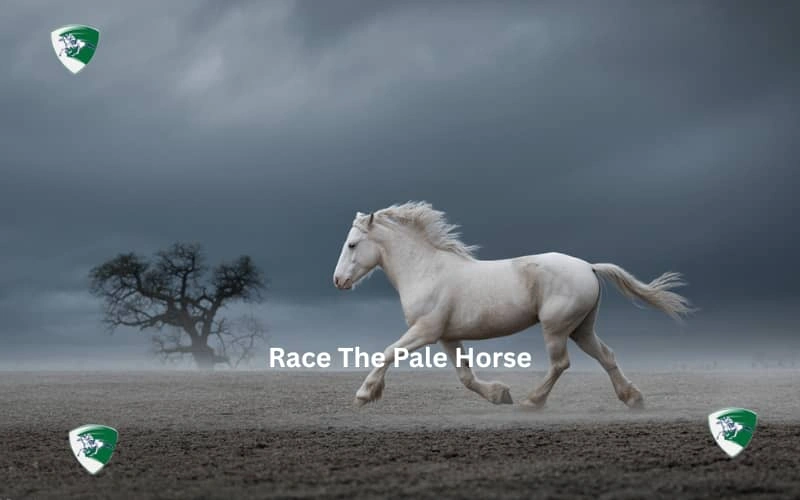
Race the Pale Horse 5 Deep Meanings Behind This Chilling Phrase
The phrase race the pale horse carries a haunting energy that resonates deeply across literature, religion, pop culture, and philosophy. While bet india race it may seem mysterious to some, the term originates from a powerful biblical reference and has evolved into a phrase full of metaphorical and symbolic interpretations. This article will explore five deep meanings behind race the pale horse and why this chilling phrase continues to captivate minds around the world.
1 The Biblical Origin of Race the Pale Horse
To understand the meaning of race the pale horse, we must begin with its biblical origin. The phrase comes from the Book of Revelation in the Bible, where the Four Horsemen of the Apocalypse are introduced. Each rider represents a different force that contributes to the end of the world: conquest, war, famine, and death.
The pale horse is the fourth horse, ridden by Death itself. Revelation 6 verse 8 states, “And I looked, and behold a pale horse and his name that sat on him was Death and Hell followed with him.” This imagery sets a grim tone and symbolizes the ultimate force that no one can escape.
When someone says race the pale horse, it can imply confronting death, running alongside it, or being in direct pursuit or defiance of the inevitable end. It is a poetic way to express the battle against mortality.
2 A Metaphor for Facing Mortality
Race the pale horse is often used as a metaphor for confronting one’s mortality. Unlike simply accepting death, racing the pale horse suggests an active engagement with the idea of dying. It is a philosophical stance that some adopt when they live life with urgency, aware of their limited time on earth.
For many, the phrase encourages a bold approach to existence. Instead of fearing death, individuals choose to race it, to live fully and meaningfully before the finish line arrives. Artists, soldiers, and adventurers often embody this mindset, throwing themselves into their passions and missions with the awareness that their time is finite.
In this context, race the pale horse becomes a rallying cry for courage and self-awareness.
3 Symbol of Spiritual Awakening and Reckoning
Beyond its association with death, race the pale horse also symbolizes spiritual reckoning. In many belief systems, death is not the end but a transformation or a gateway to another plane of existence. When people use the phrase, they may be referring to a moment of spiritual awakening or a deep inner transformation.
The act of racing the pale horse can be seen as the soul’s confrontation with its own truth. It is about peeling back the illusions of life and facing the realities of one’s existence. Whether it’s through meditation, intense emotional experiences, or a crisis that forces introspection, this race often results in a rebirth of the self.
This interpretation of race the pale horse adds a spiritual layer that goes beyond fear and darkness. It becomes about enlightenment and preparation for a higher calling.
4 Pop Culture Interpretations of Race the Pale Horse
Race the pale horse has also made its way into pop culture, appearing in books, movies, music, and video games. In these contexts, the phrase is often used to evoke suspense, drama, and a sense of finality.
For instance, writers and filmmakers have used the idea of racing the pale horse to represent a character’s internal or external struggle with fate. Whether it is a cowboy on his last ride, a soldier on a final mission, or a detective facing his last case, the phrase becomes a dramatic motif that enhances the emotional weight of the story.
In music, race the pale horse is sometimes used in lyrics to convey themes of struggle, loss, or existential dread. It adds a poetic edge and a deep emotional undertone that resonates with audiences looking for profound storytelling.
This wide use in pop culture has helped to keep the phrase alive and adaptable, allowing modern audiences to relate to its meanings in new and personal ways.
5 A Call to Live with Urgency and Purpose
At its core, race the pale horse can be understood as a call to live with urgency and purpose. In a world where distractions are endless and time often feels abundant, the reminder that the pale horse is always riding behind us can be a powerful motivator.
The phrase encourages people to stop procrastinating and start pursuing what truly matters. Whether it’s chasing a dream, mending broken relationships, or finding inner peace, racing the pale horse suggests that there is no time to waste.
Some motivational thinkers and life coaches have even adopted this philosophy to inspire action. They remind people that everyone has their own pale horse and that it is not something to fear but to race with everything you’ve got.
By embracing the mindset of race the pale horse, individuals can live more intentionally, focusing on what brings meaning and fulfillment to their lives.
Final Thoughts on the Power of Race the Pale Horse
The phrase race the pale horse is far more than just a poetic expression. It is rooted in ancient scripture, rich with symbolism, and filled with modern interpretations that touch on mortality, spirituality, purpose, and artistic expression. Whether you see it as a confrontation with death, a metaphor for living fully, or a symbol of personal awakening, the message is clear—life is short, and every moment matters.
By understanding and embracing the deeper meanings of race the pale horse, we are reminded that our time is limited, and that we should live not in fear of the end, but with the courage to meet it head-on.

